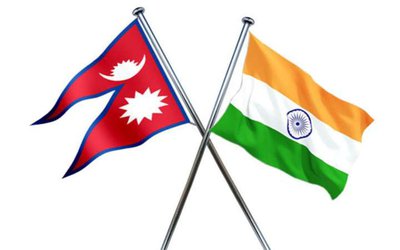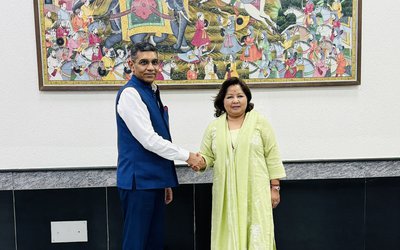Renowned for its rich and varied cultural heritage, Nepal is confronted with a significant social issue—gender inequality—that permeates all areas of the economy, politics, and education. Despite its vibrant traditions, persistent gender biases are particularly evident in the realm of information and communication technologies (ICT). In a societal context where male dominance frequently eclipses the contributions of women, ICT stands out as a promising avenue for change.
ICT presents a pivotal opportunity to combat deeply rooted gender disparities. It possesses the potential not only to narrow socio-economic divides but also to instigate meaningful shifts in gender relations. By leveraging ICT, women in Nepal can enhance their access to education, economic prospects, and social engagement.
Nevertheless, women are markedly underrepresented in Nepal's ICT landscape. Societal norms and restricted educational access pose significant challenges for girls aspiring to pursue careers in technology. This lack of representation not only curtails individual potential but also impedes the overall advancement of the sector. Recent studies indicate that, despite a growing interest among girls in STEM disciplines, prevailing gender stereotypes continue to obstruct their advancement.
The gap and the opportunity
Women are significantly underrepresented in the ICT sector in Nepal. Social norms and limited access to education create barriers for girls interested in technology careers. This underrepresentation not only limits individual opportunities, but also slows the growth of the sector.
Girls in ICT face many challenges and opportunities as they navigate their educational and career paths. For example, early enthusiasts like BojanaVukosav switched from medicine to IT because of her passion for the field, while Ana Savić combines her love of video games with programming and art. These young women illustrate the diversity of interests and talents in ICT.
Despite increasing enrollment in IT classes and more girls pursuing STEM careers, gender stereotypes still shape perceptions of women in these fields. As MarijaRadosavljević noted, many girls face discouragement and underestimation. But their determination underscores the need for more support and encouragement, as Jelena Ružičić, UNDP Portfolio Manager for Digital Innovation, pointed out. As digital literacy becomes critical to future success, addressing these challenges is essential to unlocking the full potential of Nepali girls in ICT.
However, ICT offers a unique opportunity to bridge the gender gap by serving as a powerful equalizer. Technology can provide girls with essential education and skills development, equipping them with the technical expertise needed to excel in the digital age. It also promotes economic empowerment, as careers in ICT offer competitive salaries and financial independence. Moreover, the digital world opens doors for women to create innovative businesses and become change-makers. In addition, ICT tools can amplify women's voices, enabling them to participate more actively in public discourse and decision-making processes.
Building the bridge
A multi-pronged approach is needed to bridge the digital gender divide. This strategy should focus on promoting early exposure to ICTs, providing accessible training, encouraging mentorship, and creating a supportive environment. Introducing girls to coding, web development and other ICT fields at an early age can help break down stereotypes and spark their interest. Developing affordable ICT training programs tailored to girls' specific needs is critical to overcoming educational barriers. Connecting girls with successful female professionals in the sector provides valuable guidance and inspiration. In addition, advocating for government policies that promote gender equality in ICT education and the workplace can further support these efforts.
Empower Women, Empower Nepal
By equipping Nepali girls with the tools and knowledge of ICT, we are unlocking their potential to become leaders, innovators and entrepreneurs. This, in turn, strengthens Nepal's economy, fosters social progress, and paves the way for a more just and equitable society. Investing in girls' access to ICT isn't just about technology; it's about building a better future for Nepal, and the ICT sector is a powerful tool for progress with the potential to empower Nepali girls and, by extension, all women in the country.
Ganga Bhandari is a former ICT expert at the Center for Education and Human Resource Development, Ministry of Education, Science and Technology, Government of Nepal.















